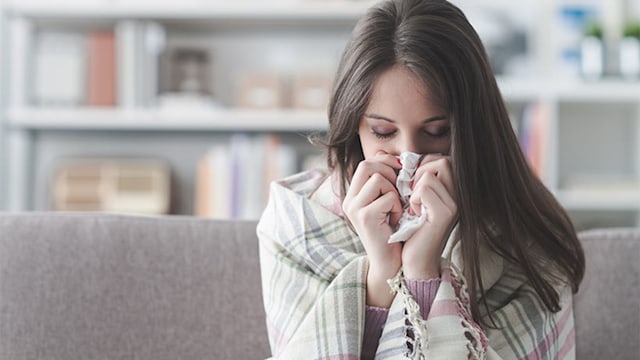Kim Kardashian has revealed that her two-year-old son Saint West was hospitalised for three days after developing pneumonia over the festive period, describing the incident as "so scary". The lung infection is more common in winter, and affects around eight in every 1,000 adults each year in the UK. But what is pneumonia, and what are the symptoms? We've rounded up everything you need to know…
What is pneumonia?
Pneumonia is swelling of the tissue in one or both lungs that is usually caused by a bacterial infection. It can affect people of any age but it's more common, and can be more serious, in the very young or the elderly.
MORE: Kim Kardashian's son recovering from pneumonia
Kim Kardashian's son Saint West was hospitalised with pneumonia
What are the symptoms of pneumonia?
According to the NHS, the symptoms of pneumonia can develop over 24-48 hours, or may come on slowly over the course of several days. Common symptoms include –
- A cough – this may be dry, or produce thick yellow, green, brown or blood-stained mucus
- Difficulty breathing – breathing may be rapid and shallow, and you may feel breathless, even when resting
- Rapid heartbeat
- Fever
- Sweating and shivering
- Generally feeling unwell
- Loss of appetite
- Chest pain which gets worse when breathing or coughing
How is pneumonia diagnosed?
Pneumonia can be difficult to diagnose because it shares many symptoms with other conditions such as the common cold, bronchitis and asthma. Your GP may be able to diagnose the lung infection by asking about your symptoms and examining your chest. Further tests may be needed in some cases.
STORY: How to overcome a cold in just 24 hours
Pneumonia shares many symptoms with the common cold
What is the treatment for pneumonia?
Mild pneumonia can usually be treated by getting plenty of rest, taking antibiotics and drinking plenty of fluids. For at-risk groups, pneumonia can be severe and may need to be treated in hospital. It's usually safe for people with pneumonia to be around others, however people with a weakened immune system are advised to avoid close contact with a person who has the infection.
See the latest health stories here.
